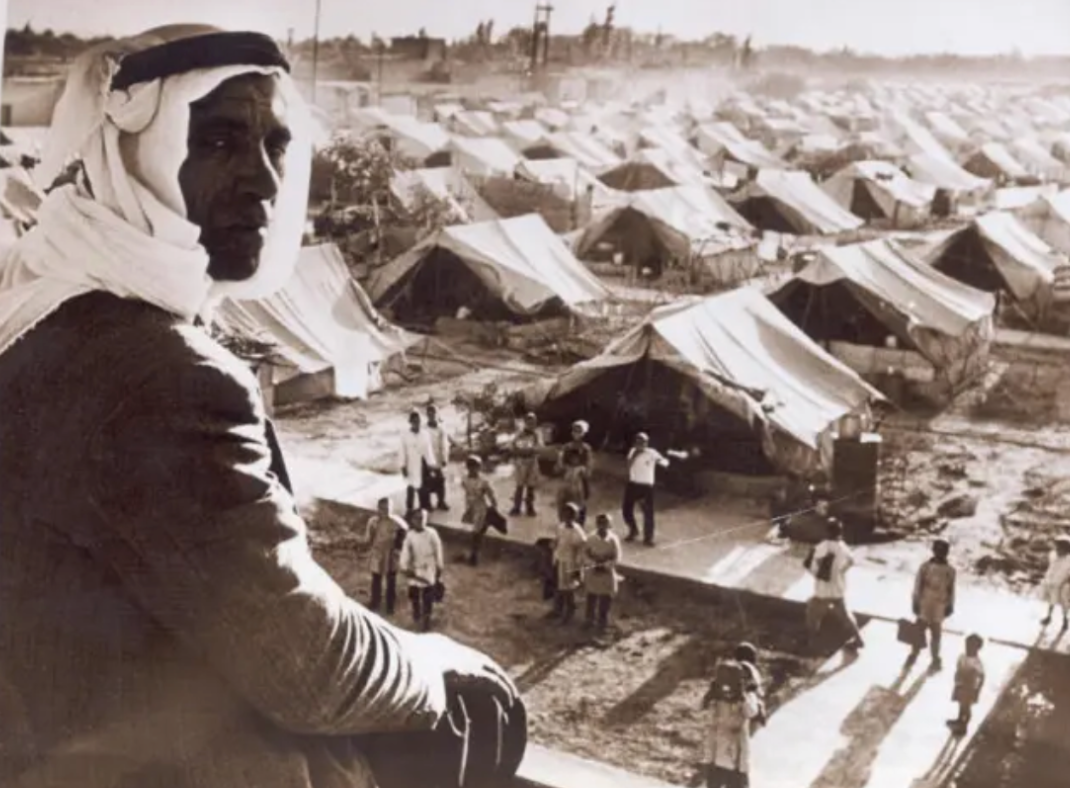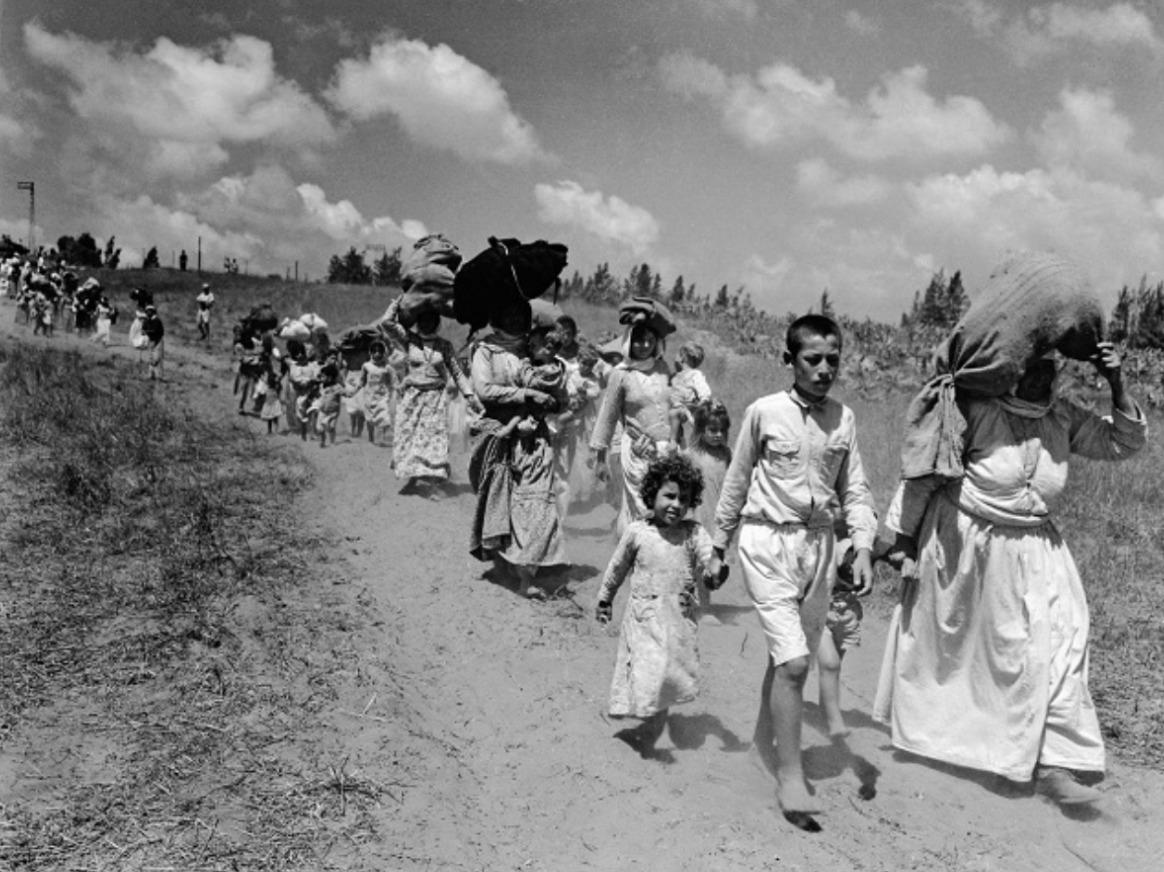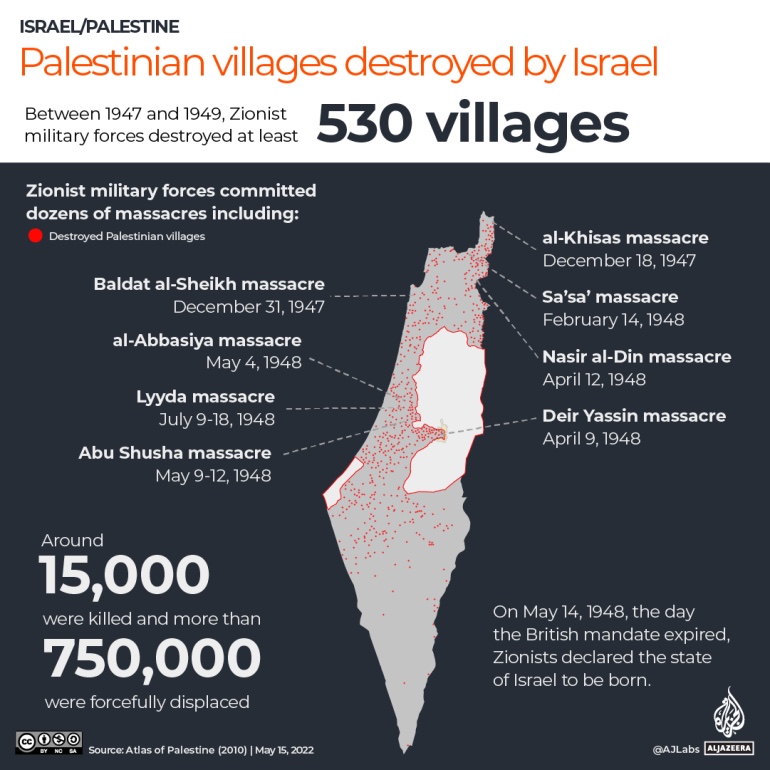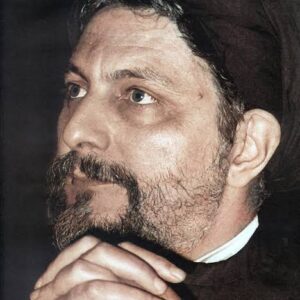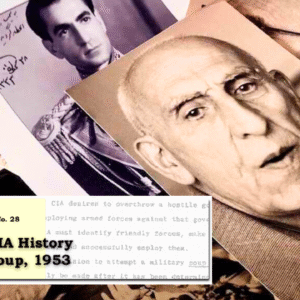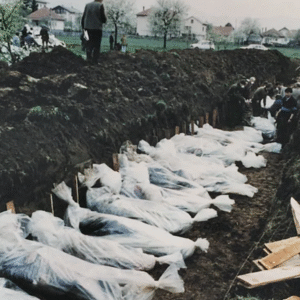All About Palestine III: UN Partition Plan and the Nakba
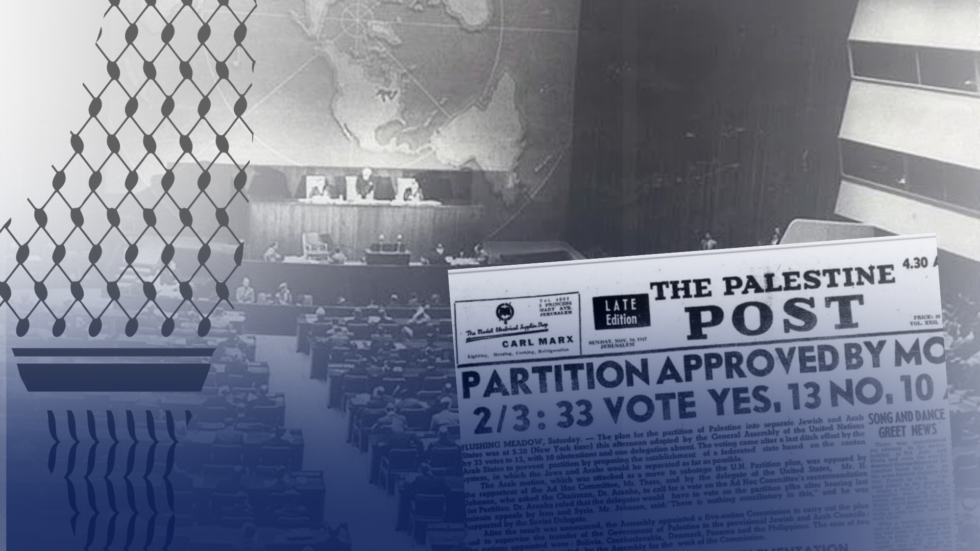
All About Palestine III: UN Partition Plan and the Nakba
Palestine. What was once a thriving, culturally, and religiously diverse land, now lies under the military occupation of a racist, colonial regime. In the early 1900’s, ‘Imperialism’ and ‘Zionism’ merged together in perhaps the greatest conspiracy in human history: to uproot a nation and establish a military outpost in the form of a settler-colony on the shores of West Asia, to serve the British Empire’s interests in the region.
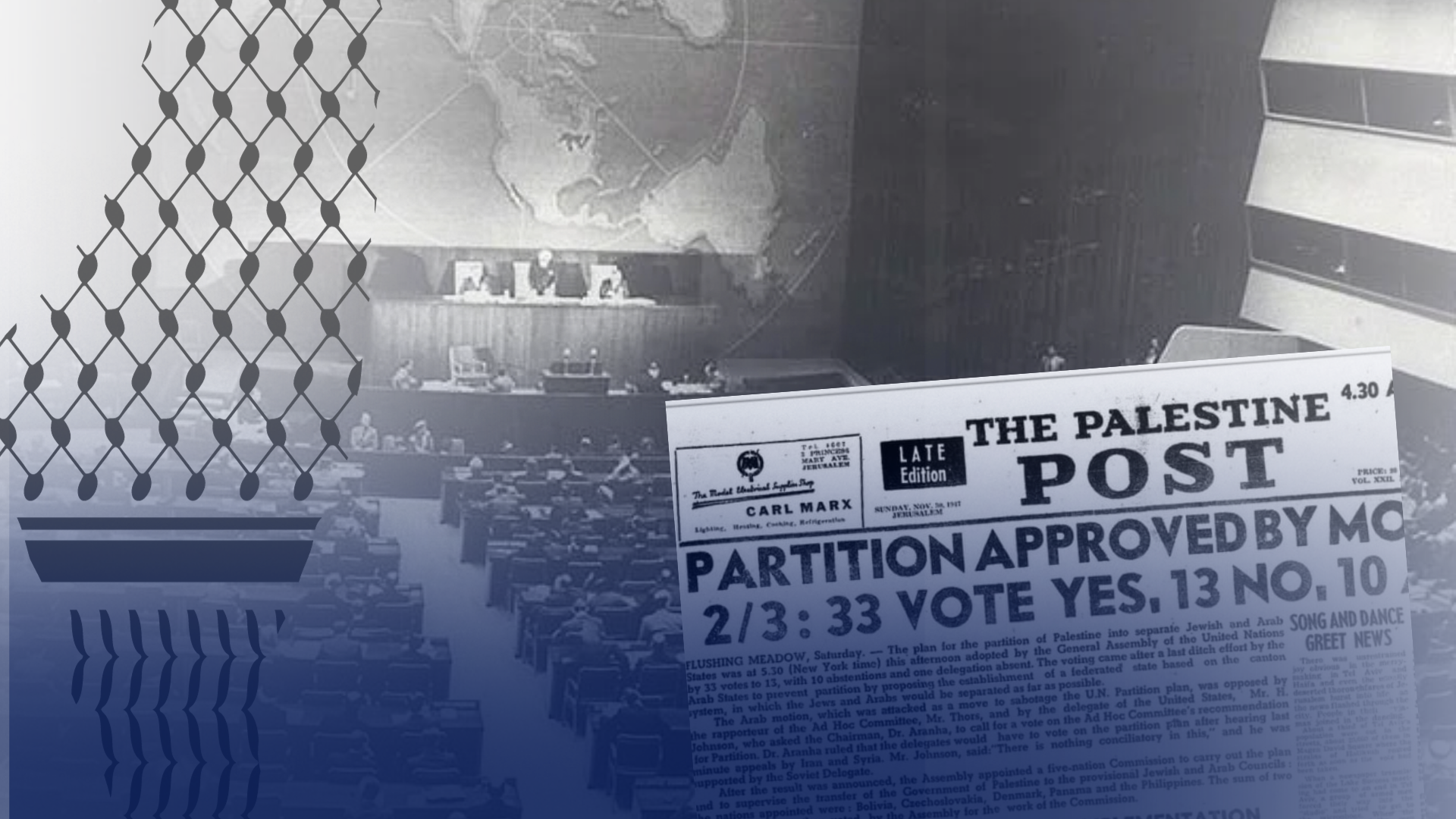
All About Palestine III: UN Partition Plan and the Nakba
Palestine. What was once a thriving, culturally, and religiously diverse land, now lies under the military occupation of a racist, colonial regime. In the early 1900’s, ‘Imperialism’ and ‘Zionism’ merged together in perhaps the greatest conspiracy in human history: to uproot a nation and establish a military outpost in the form of a settler-colony on the shores of West Asia, to serve the British Empire’s interests in the region.
Written by: Nadia Hojaij and Yahia Hassani | Copy Editors: Zainabrights | Design: Fatima El-Zein
In February 1947, with increasing hostilities in Palestine and the British exhausted by WWII, Britain announced it would terminate its trust mandate on the Palestinians that would lead them to self-governance and instead referred the issue to the United Nations. At the time, the native Muslim and Christian Arabs of Palestine made up about 67% of the population and owned about 93% of the land, whereas the Jewish settlers made up about 33% of the population and owned about 7% of the land (after decades of intensive colonization).
In September 1947, The UN’s General Assembly formed an Ad Hoc committee to consider the UNSCOP’s report (Partition Plan) which recommended dividing Palestine into two parts, a Jewish State and an Arab State, with Jerusalem as an “international zone.” The UN proposed giving 55% of the land to the recently immigrated Jewish settlers, even though they only owned 7% percent of the land and were about one third of the population and proposed giving 45% of the land to the native Palestinian Arabs who owned over 90% of the land, and were about two thirds of the population.
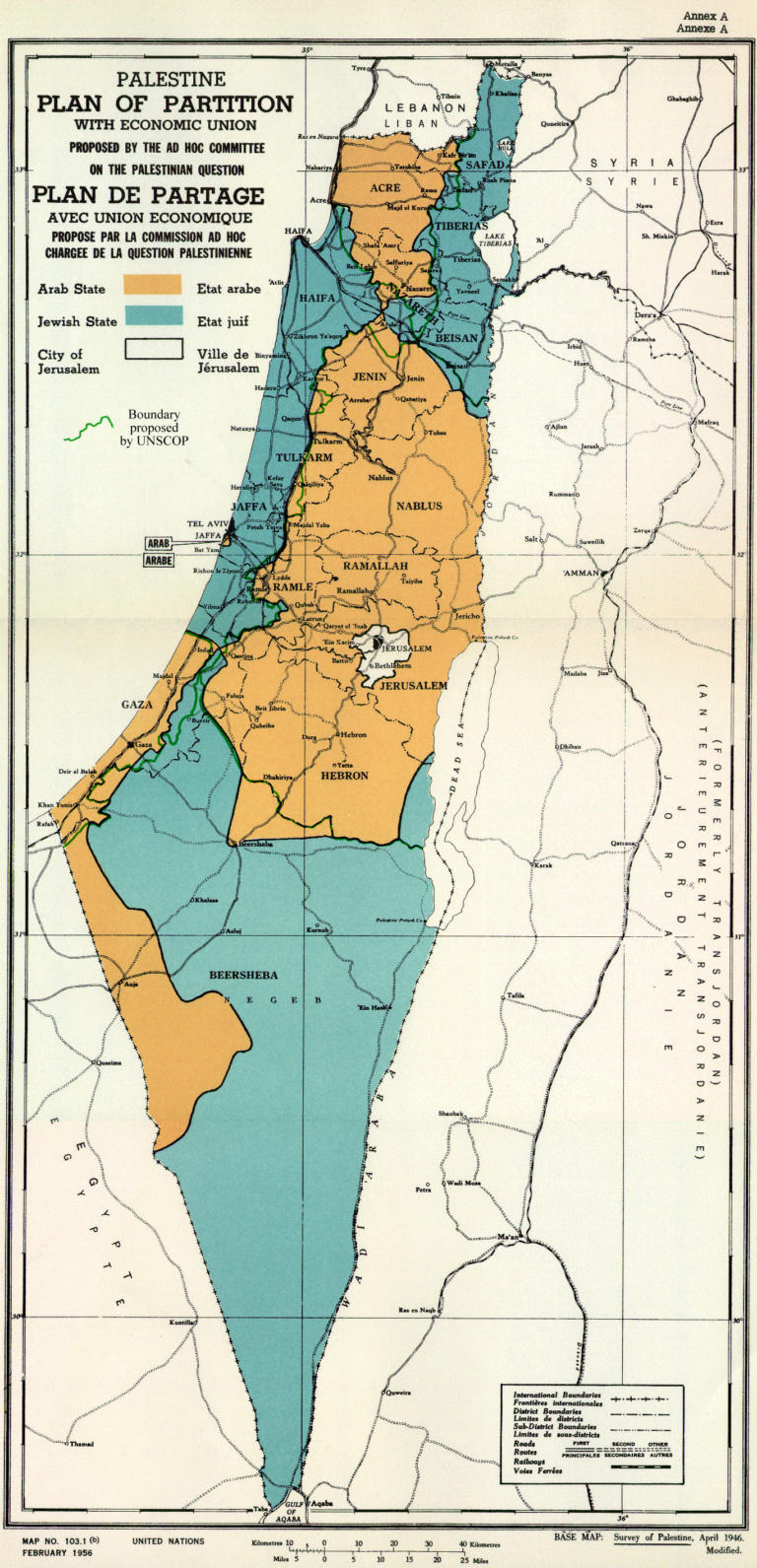
Furthermore, the land was divided in such a way where 55% of land allocated for the Jewish State would still have a 45% population of indigenous Arabs, and only 55% Jewish settlers. The 45% indigenous Arabs were expected to become a minority overnight, and would be governed under a Jewish ruling body. The native Arabs questioned how it could be a “Jewish” State when nearly half of the population were not Jewish. Meanwhile, the 45% of land allocated to the proposed Arab state would have a 99% Arab population, with the international zone in Jerusalem at about a 50/50 split.

Additionally, the proposed Jewish State would receive most of the fertile coastline, including the two port cities of Haifa and Jaffa (later changed to Tel-Aviv), as well as the resource-rich Negev region, Sea of Galilee, and the only access to the Red Sea in the south. Naturally, the indigenous Palestinians strongly opposed the plan, while Zionist leaders formally accepted it. However, many Zionists believed it wasn’t enough, including David Ben-Gurion, who became Israel’s first Prime Minister. They opposed the plan and believed a war could be an ideal opportunity to expand the new state’s borders beyond the UN partition boundaries at the expense of the Palestinians.
In his ‘Complete Diaries, Vol. II. p. 711’, Theodore Herzl, the founder of Zionism, says that the area of the Jewish State stretches “From the Brook of Egypt to the Euphrates.”
On November 29, 1947, after intense lobbying and pressure on member states, primarily by the US and Zionist organizations, the UN’s General Assembly adopted Resolution 181 (The Partition Plan) with 33 votes in favor, 13 votes against, and 10 abstentions. The native Palestinians and neighboring Arab states regarded the UN’s resolution as a deep injustice which no self-respecting people would accept. They viewed it as an international betrayal because it conflicted with the basic principles for which the organization was established; which was to uphold the right to self-determination for all people.
The UN’s decision was immediately met in Arab Palestine by general strikes, demonstrations, and protests. Zionist militias, heavily armed and trained by the British, seized the opportunity. Emboldened by the UN’s announcement, Zionist militias attacked the native Palestinians, invaded their villages, destroyed their homes, committed unprecedented massacres, and expelled hundreds of thousands of natives, in what became known as the Nakba, or “Catastrophe.”
Thus began the era of genocide, occupation, and ethnic cleansing of Palestine.
Palestinian villagers, volunteers, and irregular forces did whatever they could to defend themselves and their land. Palestinians were poorly armed and unorganized as their militarization was prevented by the British during the mandate period. Palestinians sought help from neighboring Arab States such as Egypt, Jordan, Syria, and Lebanon who came to aid their brethren, in what became known as the first Arab-Israeli War (1947-1949). However, with US and British support, the Zionist occupation forces established superiority and usurped lands far beyond the proposed Jewish State, occupying nearly 78% of Palestine. The first Arab-Israeli War resulted in Israel’s declaration of statehood on May 15, 1948, followed by an official armistice agreement in 1949, with Egypt controlling the Gaza strip and Jordan controlling the West Bank. The proposed Palestinian Arab State was never established.
The UN’s Partition Plan, subsequent Zionist invasion, and the Nakba are largely considered the root cause of every current round of escalation and violence witnessed today, as native Palestinians have continued to engage in resistance. Many countries, governments, and people have never recognized the legitimacy of Israel as an official state due to how it was founded, and often refer to it as an entity (either Zionist, Israeli, colonial, etc). This is why Israel is often found written between parentheses or with a lowercase “i” as a form of protest. Many Arab/Muslim countries established Anti-Normalization Laws which consider cooperation with the Israeli entity as treason. The few Arab/Muslim governments that eventually normalized relations, after intense lobbying and pressures by Western powers, continue to face strong opposition from their people.
The Nakba 1948
The Nakba, meaning “Catastrophe” in Arabic, refers to the mass killing, displacement and dispossession of Palestinians by Zionist occupation forces that took place between 1947-1949 following the UN’s proposal to partition Palestine. In a series of mass atrocities, Zionist militias destroyed about 530 villages, killed about 15,000 natives, and forcibly expelled at least 750,000 Palestinians (roughly 75% of the native population) from their homes. Today, those displaced make up approximately 6 million officially registered refugees, whom Israel still denies a right to return, despite UN Resolution 194 stating they should be permitted to do so. Palestinian refugees are forced to live in 58 refugee camps throughout Palestine and neighboring countries. This does not include the millions of Palestinians today who were granted citizenship in countries around the world who are also not granted a right to return. The UN established UNRWA, an agency to provide direct care and relief to the millions of Palestinian refugees, including education, healthcare, social services, and camp improvement. According to the UN, the plight of Palestinian refugees remains the longest unresolved refugee crisis in the world.
Zionist militias (Haganah, Irgun, Stern) committed many massacres during the Nakba. One of the most infamous massacres took place in the village of Deir Yassine, where over 100 Palestinians were killed, including many women, children, and elderly. According to testimonies, people were tied to trees and set on fire, bodies were piled up and burned, and women were lined up and shot by sub-machine guns. These deliberate attacks were intended to drive more Palestinians out of their homes for Zionists to colonize more land. The massacre was perpetrated by the Irgun and Stern gang, whose leaders were Menachem Begin and Yitzhak Shamir, both of whom went on to become prime ministers of Israel. The Haganah militia was led by David Ben-Gurion, who became Israel’s first prime minister.
Salman Abu Sitta, a distinguished Palestinian intellectual and survivor of the Nakba, recalls how his village in Beersheba was completely destroyed. He describes the Nakba as “an earthquake not by the forces of nature, but by the power of evil. I never could understand why Zionists destroyed my life and the millions of other Palestinians or how this crime was portrayed as a victory of civilization.” Abder Raouf Misleh, another survivor who has lived in Brazil since 1956 but still has dreams of returning home, recollects flashbacks of Zionist crimes:
"I remember when Israeli forces entered my village of Kakun when I was about 12 years old. My village had a mosque and it had only one corner where a lot of people always gathered at the end of day to talk and exchange ideas. At around five or six o'clock, the Israeli forces bombed that corner and killed more than 38 people.”
Palestinians displaced during the Nakba thought it was only temporary and believed they would return to their villages. Many survivors and their descendants still cling onto that hope and have kept the keys to their homes, making the key a widely used symbol of the Nakba.
In 1950, Israel passed the Law of Return which grants every Jew in the world citizenship and the right to settle in occupied Palestine. It was later amended to also allow non-Jewish relatives of Jews and even dangerous criminals as well. Meanwhile, Palestinians that were expelled and their direct descendants are not allowed to return to their homes or villages. Although Zionists expelled 750,000 native Palestinians to ensure a Jewish majority state, about 150,000 Palestinians managed to remain or were internally displaced. They lived under a tightly controlled military occupation for nearly 20 years before eventually being granted Israeli citizenship. Today, they make up about 20% of Israel’s population. However, they face over 65 discriminatory laws based solely on their ethnicity, rendering them second-class citizens in their own homeland. They are commonly referred to as “48-ers” or “1948 Palestinians” for living within the colonized territory that became Israel in 1948.
Palestinians, along with people in solidarity around the world, commemorate the Nakba yearly on May 15th in the form of demonstrations, rallies, and protests, known as the “Day of Nakba,” while Zionists celebrate the same day as Israel’s “Day of Independence.” In 2011, Israeli legislation made mourning the Nakba publicly difficult for Palestinians living within the Israeli entity through the “Nakba Law,” which authorizes revoking funding from institutions that reject Israel’s character as a “Jewish state,” or mark the entity’s Independence Day as a day of mourning.
The Nakba represents a pivotal turning point in the Palestinian struggle for liberation which was not isolated to 1948, but is an ongoing source of dispossession and colonization by the Israeli occupational entity that continues to the present day.
Weaponizing the Holocaust
WWII was a tragic chapter in human history. Statistics on casualties are inexact and vary greatly, as there are no reliable figures for the casualties of the Soviet Union and China, the two countries in which casualties were undoubtedly greatest. According to the National WWII Museum, 60 million human souls were lost during the war, 15 million of which were battle deaths, and 45 million civilian deaths. This does not include the number of civilian deaths in China which alone might be well more than 50 million. According to the Holocaust Museum, among the millions of civilians killed during the war were 6 million Jews in the Holocaust.
It is widely believed that the Holocaust had a decisive influence on the establishment of the State of Israel. Many survivors desired a homeland where Jews would no longer be a vulnerable minority. For Jews, the Holocaust reinforced the Zionist ideology that a Jewish State would be the only solution to anti-semitism across Europe. For nations around the world shocked by Nazi atrocities, the Holocaust helped convince them to support the idea.
Israeli professor Evyatar Friesel states “The quest for a Jewish state had always been paramount in Zionist thought and action. For tactical reasons official Zionism was cautious in explaining its ultimate aims, especially when addressing general public opinion. Terms other than "state" were used in various political documents or official utterances by leading Zionist statesmen: Jewish home, Jewish National Home, Jewish commonwealth. But there is no reason to doubt that the ultimate aim of the Zionist mainstream was the creation of a state in Palestine. The question remained as to what methods should be used in order to reach the consummation of these hopes.”
However, the questions asked by Palestinians and those in solidarity continue to remain: What did Palestinians have to do with anti-semitism in Europe? Why did Palestine have to pay the price for Nazi-Germany crimes? Why did Palestinians have to be massacred and expelled from their homeland? Why does one genocide justify another?
Since the Nakba, Palestinians have continued to engage in their internationally recognized right to armed resistance against colonialism and occupation, which the Zionist entity continues to use as a pretext to expand its ethnic cleansing and occupation of Palestine. Since its inception, the Israeli entity often references the Holocaust to gain sympathy and justification for its expanding occupation and oppression of Palestinians, despite choosing to build a homeland for Jews in Palestine nearly half a century before the Holocaust.
In 1969, Israeli Foreign Minister Abba Eban addressed the UN regarding Israel's refusal to retreat from the West Bank which it occupied on June 5th, 1967, stating “We have openly said that the map will never again be the same as on June 4, 1967. For us, this is a matter of security and of principles. The June map is for us equivalent to insecurity and danger. I do not exaggerate when I say that it has for us something of a memory of Auschwitz.”
Israeli leaders have frequently used some version of this phrase to invoke the existential dread of the Holocaust when pressed to withdraw from newly occupied territories. In 1992, when the US requested Israel to put a hold on expanding its settlements in exchange for $10 billion in American loan guarantees, soon to be Israeli PM Benjamin Netanyahu complained that Israel was being asked to accept “the borders of Auschwitz.”
Zionist leaders have long abused Nazi and Holocaust analogies in order to vilify Palestinians and justify their aggressions, occupation, and ethnic cleansing of Palestine. In 1956, during Israel’s attack on Egypt, they portrayed Egypt’s pan-Arab leader Gamel Abdel-Nasser as “Hitler on the Nile.” In 1982, during Israel’s invasion of Lebanon, Israeli PM Menachem Begin compared Palestinian leader Yasir Arafat holed up in Beirut to Hitler in his final days in his Berlin bunker.
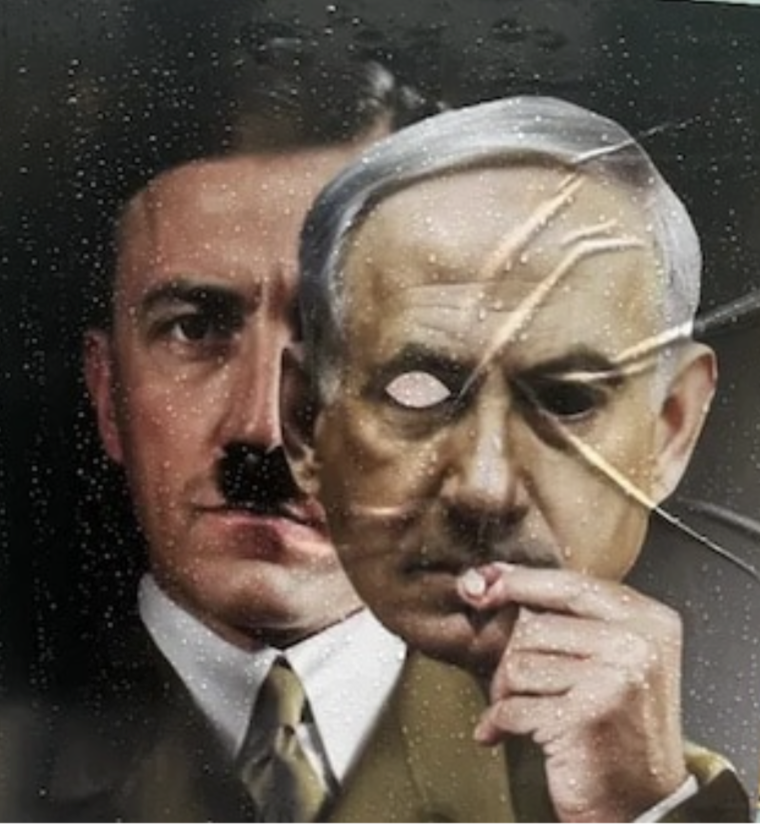
In 2015, Israeli PM Netanyaho sparked uproar when he stated it was a Palestinian Mufti who convinced Hitler to exterminate Jews, a claim rejected by most Holocaust scholars. To justify the increasing settlements, Israeli Finance Minister Bezalel Smotrich claimed “there are two million Nazis” in the West Bank, adding “We will strengthen the settlement and cripple the Nazis wherever they are to ensure ‘never again!” During Israel’s 2023 War on Gaza, former Israeli PM Naftali Bennett stated “We’re fighting Nazis” while an Israeli parliament member called for “erasing the Gaza Strip from the face of the earth.” During the same war, Israeli Defence Minister Yoav Gallant ordered a total siege on Gaza, in total violation of international law, stating “No electricity, no food, no water, no gas – it’s all closed,” collectively punishing over 2.3 million people whom he described as “human animals.” There are many such expressions and genocidal rhetoric by Israeli politicians and senior officials.
Israeli Professor of Genocidal Studies Dr. Raz Segal states “The fantasy of “fighting Nazis” drives such explicit language, because the image of Nazis is one of “pure, unadulterated evil”, which removes all laws and restrictions in the fight against it. Perpetrators of genocide always see their victims as evil and themselves as righteous. This is, indeed, how Nazis saw Jews.”
He published an article titled “Israel Must Stop Weaponizing the Holocaust” in which he criticizes the dangerous use of the Holocaust to justify Israeli mass violence against Palestinians.
Such Zionist and Israeli abuse of the Holocaust’s memory was exposed by American Jewish scholar, Norman Finkelstein, in his daring book, The Holocaust Industry, Reflections on the Exploitation of Jewish Suffering as well as by Israeli historian Tom Segev in his revelatory book The Seventh Million, The Israelis and The Holocaust.
The piece you just read is a part of a larger report on Palestine. Each day we will delve into a different aspect.
SOURCES
- What Price Israel, Alfred Lilienthal, Pages 148-150
If you value our journalism…
TMJ News is committed to remaining an independent, reader-funded news platform. A small donation from our valuable readers like you keeps us running so that we can keep our reporting open to all! We’ve launched a fundraising campaign to raise the $10,000 we need to meet our publishing costs this year, and it’d mean the world to us if you’d make a monthly or one-time donation to help. If you value what we publish and agree that our world needs alternative voices like ours in the media, please give what you can today.
Related
47 Years After His Disappearance, Imam Musa Sadr’s Legacy of Unity, Dignity, and Resistance Lives On
August 31st, 2025 marked the 47th anniversary of the disappearance of revolutionary Islamic scholar Imam…

